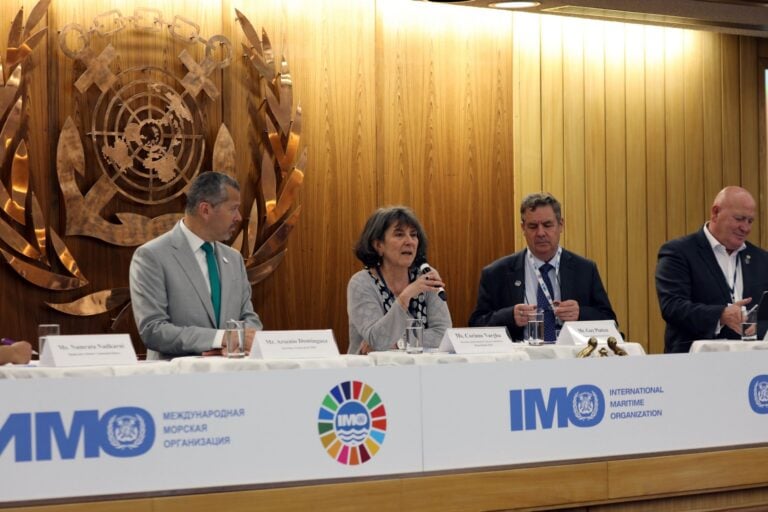Seafarers detained in connection with their professional duties must be treated fairly and with dignity, with full respect for their human rights, according to high-ranking maritime officials.
This was the consensus of senior members from the International Maritime Organisation (IMO), International Labour Organisation (ILO), International Chamber of Shipping (ICS), and International Transport Workers’ Federation (ITF) during a joint event held at the IMO headquarters in London this week.
Participants stressed the need for due process and the fair treatment of seafarers, enabling them to be swiftly repatriated in accordance with the IMO/ILO guidelines.
They acknowledged that unfair criminalisation remains a serious concern, damaging both seafarers’ wellbeing and wider industry confidence.
“Global trade depends on the people, the seafarers, who are onboard ships day in, day out,” said IMO Secretary-General Arsenio Dominguez.
He noted that the well-being of seafarers must remain a shared global priority and added that stronger legal protections, increased awareness, and continued collaboration are essential.
According to ILO Director Corinne Vargha, ratification and enforcement of the MLC are crucial.
She said the ILO remains committed to using all mechanisms at its disposal to support seafarers in these “dreadful situations”.
In her view, prosecutors and judges must be made aware of the particularities of seafarers’ work, while good practices on the implementation of the guidelines should be shared.
In a similar vein, ICS Secretary General Thomas Kazakos said he looks forward to carrying on the work of his predecessor Guy Platten and to continuing collaboration with the IMO, ILO and ITF.
He described strengthened cooperation as vital to safeguard seafarers against unfair criminalisation. “Seafarers should not be the victims of such actions and must be supported,” he said.
“This is for the betterment of the whole maritime sector and the movement of global trade.”
Meanwhile, Stephen Cotton, General Secretary of the ITF, said seafarer criminalisation is a growing crisis that demands urgent and coordinated action.
“We need to move beyond policy and into implementation,” he said. Cotton also pointed out that while the Guidelines exist, too many governments are still falling short.
He called on all stakeholders to push for enforcement, collect data, and hold the industry accountable. “With the IMO, ILO, ICS and ITF united, we can drive the change that seafarers need and deserve,” he said.
The event also heard first-hand accounts from people directly involved in cases, offering views from the seafarer, port, supply chain and shipowner perspective.
The Guidelines on Fair Treatment of Seafarers Detained in Connection with Alleged Crimes, adopted by the IMO legal committee in April, were developed jointly by the IMO and ILO with the support of industry partners in the Tripartite Working Group.
They cover due process, protection from arbitrary detention, and coercion or intimidation.
In addition, they ensure that wages, medical care and repatriation rights remain intact during legal proceedings.
More broadly, the guidelines aim to improve coordination among port States, flag States, coastal States, States of nationality, shipowners and seafarers.
Looking ahead, participants urged concrete follow-up. These include robust policies, targeted training, enforcement, monitoring, and the sharing of best practices across jurisdictions.
The training of judicial authorities was seen as particularly urgent. Recognising that many systems lack expertise in maritime law, participants called for capacity-building to support fair and timely outcomes.
Furthermore, stronger coordination between member states and the industry was also emphasised, to ensure the consistent application of legal protections and support for the rapid release and repatriation of detained seafarers.
At the same time, insurers, including P & I Clubs, were urged to provide legal support coverage and uphold seafarers’ welfare in cases of unfair treatment.
The impact on crew change and supply chain reliability was also highlighted.
According to participants, seafarer criminalisation disrupts operations and creates reputational and operational risks throughout the maritime sector.
As a result, maritime and logistics companies were urged to support clear protection protocols, advocate for consistent treatment across jurisdictions, and invest in welfare initiatives across shipping and port networks.
There was strong consensus that seafarers, key workers essential to global trade, must not bear the burden of legal uncertainty, detention, or abandonment due to systemic gaps or negligence.






Click here to change your cookie preferences